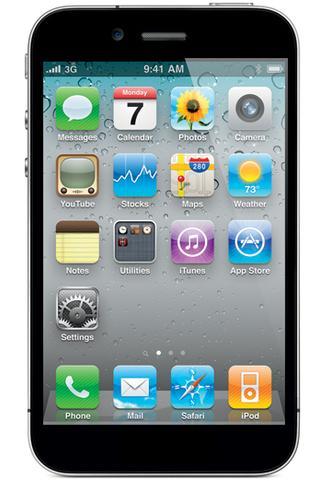
As per usual, rumors of the next generation iPhone have spread far and wide, some claiming the device will sport a larger display, others saying it will tout an 8-megapixel camera. But one of the more interesting reports is that the next iteration of the famed iPhone with come missing one key component: 4G capabilities, more specifically LTE.
Although I could be entirely wrong, I tend to believe the reports as I highly doubt Apple will release a product that doesn't get dependable and strong battery life. Apple prides themselves in their second to none quality products that offer up some of the most consistent experiences out of any electronics out there. Quite honestly, the only two things LTE is capable of right now is intensely high down and uplink speeds and eating smartphone batteries for breakfast.
I will add that I also believe they will temporarily be shooting themselves in the foot if they avoid LTE right away. Nevertheless, they may fare better that way as opposed to tainting their standout reputation.
All of this is beside the point though. With a rumor of the next gen iPhone missing 4G, people have begun to wonder when a 4G iPhone will come ... and who will or should be the first to get it. (Mind you, this phone could be a year to a year and a half away.) If you are partial to the iPhone and a specific carrier, your response to the question is pretty obvious. But I'd like to take a different approach than "my carrier should get the 4G iPhone first because ... it's my carrier."
Apple likes to release annual iterations of their iPhone like most of their other gadgets, but they dropped the ball this time around. They released the Verizon iPhone 4 eight months after the original, fourth generation iPhone. If they release the next iPhone (supposedly in September) on both AT&T and Verizon at the same time, the VeriPhone will be less than a year old and could spark a pitchfork riot; but they will have fixed the blunder in the process. Logically, if they continue these offset releases instead, AT&T would get the 4G iPhone first.
When you consider everything that AT&T and the iPhone have been through, it's time someone else gets "first dibs." AT&T had exclusivity on the iPhone for four, almost five, full years in the US. Most everyone who is going to get an iPhone on AT&T has already bought one already. Sending the first 4G iPhone to a carrier that has yet to get their paws on the Apple phone would be good for both Apple and the respective carrier. They would have a chance to add several hundred thousands (if not millions) of new subscribers, instead of the majority simply renewing.
Digging even further into their history together, not only did AT&T get the iPhone first and have free reign over Apple's phone for nearly five years, they pushed it to its fullest potential – which took its toll on Ol' Blue's network. AT&T is still recovering from having an overloaded network and is (sort of) the last one to get the ball rolling with their 4G network. Touching back on consistency, Apple endeavors to provide a phone on a network that will get great coverage. If they are going to add a feature to a phone, by golly, customers are going to be able to use it.
Since it looks like HSPA+ and WiMAX might not have much of a prominent future among the presence of LTE and Verizon is already up and running (sprinting, really) with their LTE network, maybe they should be the first to get it. The problem with that though, is Verizon's unmistakable stake in Android. The device – although it will always be popular and have a huge following – would almost certainly get lost in a sea of ever-evolving, ever-advancing Android phones, much like the iPhone 4 did.
The last thing worth considering is T-Mobile's uncertain fate. Solely because they could possibly be consumed by AT&T, T-Mobile is hardly a realistic option at this point. That leaves Sprint and regional carriers, which is the route Apple should ideally take. Though Sprint does push Android pretty strongly, they also have a spot in their heart for BlackBerry, webOS and Windows Phone 7. Adding iOS to the mix would complete Sprint's lineup and give them one of the most diverse showcases in the industry. Not to mention, they're the only major stateside carrier that has yet to have the iPhone (officially or unofficially) on their network. What say you? Isn't it time Sprint gets a little Apple love, too?